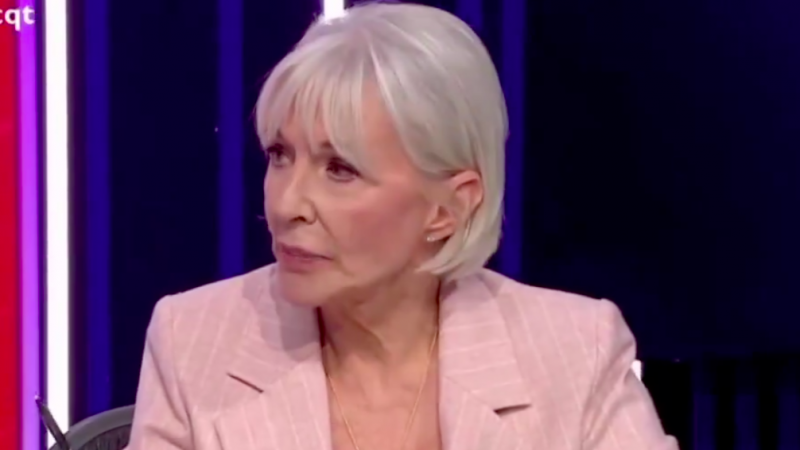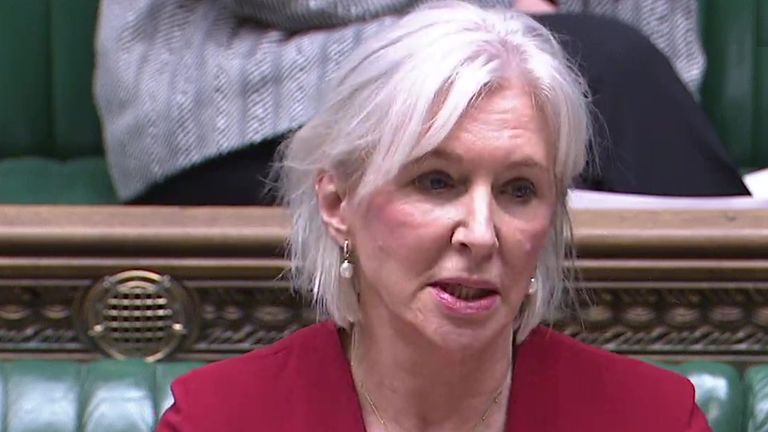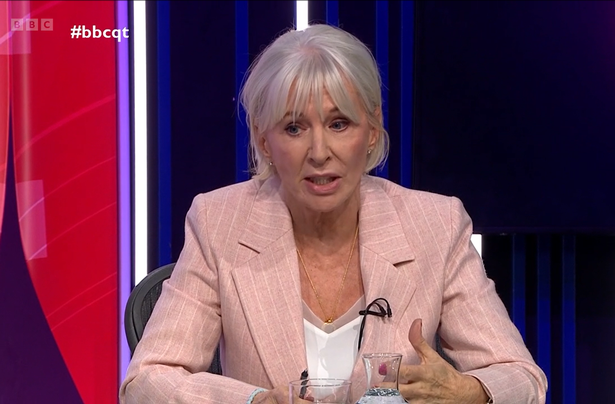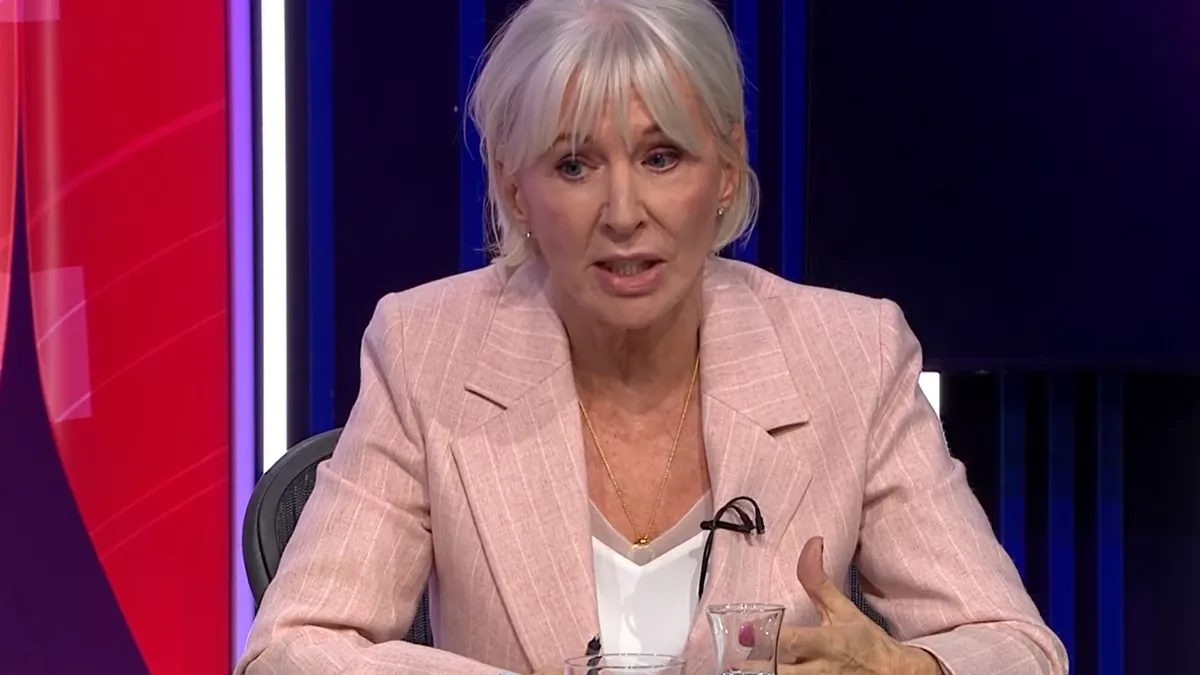BBC Question Time Audience Laugh as Nadine Dorries Squirms Amid Immigration Debate
Nadine Dorries Faces Tough Questions on Immigration on BBC Question Time
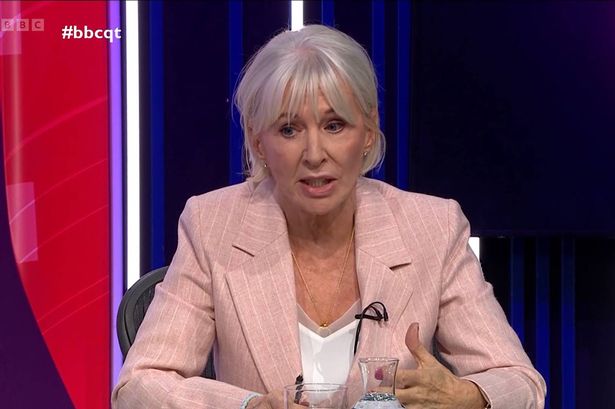
Last night on BBC’s Question Time, Nadine Dorries, the former Conservative MP who recently joined Reform UK, found herself in an uncomfortable position during a spirited discussion on immigration. The audience’s audible laughter echoed through the studio as Dorries faltered when pressed on how her new party intends to tackle immigration challenges facing the UK.
The episode, filmed in Swindon, Wiltshire, began with Dorries introducing Reform UK and its stance on immigration. However, her initial rambling remarks were met with visible surprise and skepticism from the crowd. The tension escalated when Labour MP Stephen Kinnock directly questioned Dorries about the practical implications of Reform UK’s policies, particularly regarding the UK’s relationship with the European Convention on Human Rights (ECHR).
Kinnock’s pointed inquiry about the consequences of leaving the ECHR caught Dorries off guard. She struggled to provide a coherent response about whether such a move would help or hinder international cooperation on immigration. Her hesitation and inability to clearly articulate a plan led to laughter and murmurs from the audience, highlighting the contentious nature of the debate.
The Immigration Debate: Key Moments and Audience Reactions

Nadine Dorries’ difficulty in addressing the complexities of immigration policy was a focal point of the discussion. She argued that the ECHR restricts the UK’s ability to control its borders effectively. However, when challenged on the specifics, she admitted uncertainty, stating, “I don’t… I… When it comes to our borders…” This admission was met with audible chuckles from the studio audience, underscoring the skepticism about Reform UK’s immigration strategy.
Despite the awkward moment, Dorries emphasized the financial burden of current asylum policies, citing an estimated £4 billion spent annually on asylum hotels. She insisted that Reform UK is the only party with a credible plan to stop illegal immigration, warning the audience that they would regret dismissing the party’s approach once it gains power.
Labour’s Stephen Kinnock was quick to challenge this claim, pressing Dorries for concrete details about how Reform UK would implement its policies. The exchange highlighted the broader political divide on immigration, with Reform UK advocating for stricter border controls and Labour emphasizing human rights and international cooperation.
The debate also touched on recent immigration-related unrest in Ireland, where protests turned violent following allegations against an asylum seeker. This context added urgency to the discussion, with journalist Mariella Frostrup expressing concern over the UK’s perceived loss of compassion towards migrants. Her remarks about the dehumanization of immigrants resonated with the audience, drawing applause and reflecting the emotional complexity of the issue.
Why Immigration Remains a Divisive Issue in UK Politics
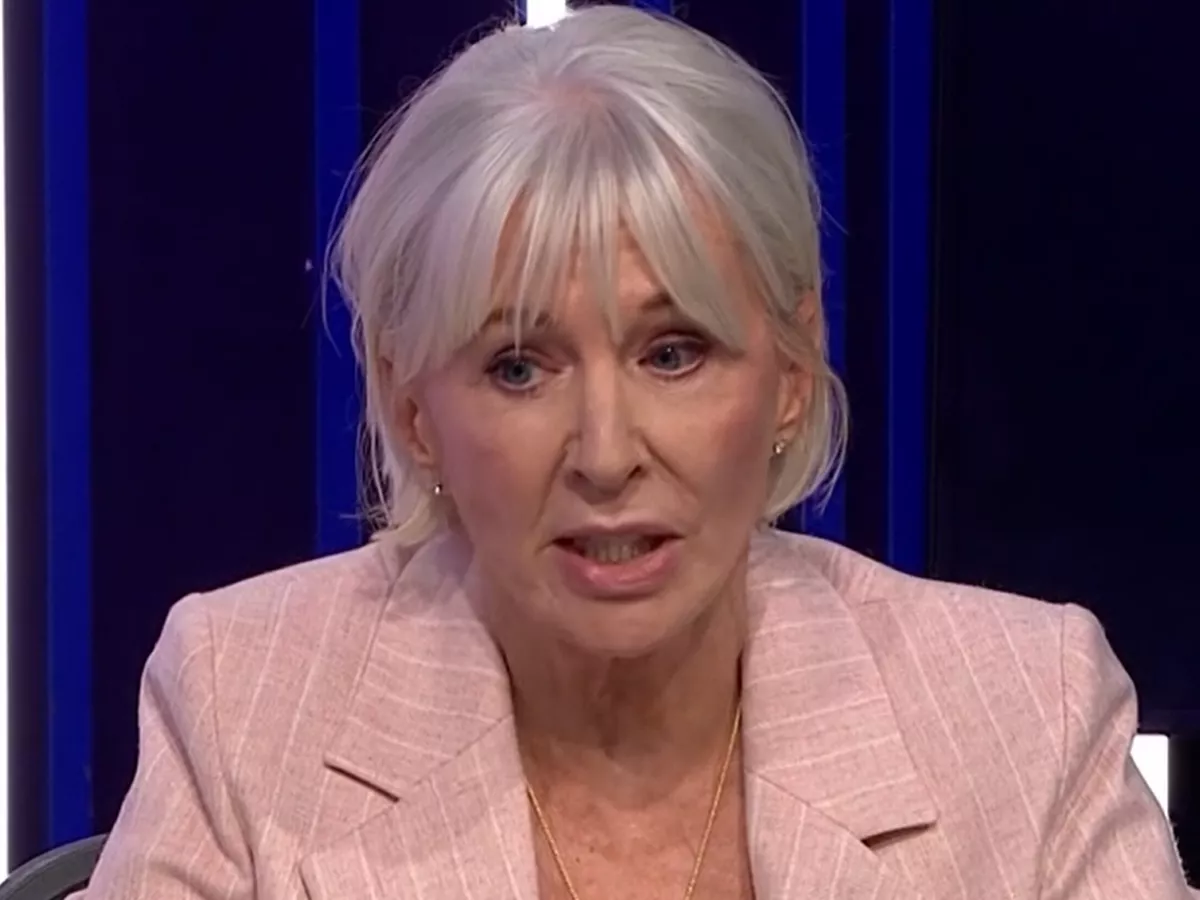
Immigration continues to be one of the most polarizing topics in UK politics. The debate on BBC Question Time showcased the contrasting perspectives held by different parties and the challenges politicians face when addressing this sensitive subject.
Reform UK, represented by Nadine Dorries, positions itself as the party with a tough stance on immigration, advocating for stronger border controls and a departure from international agreements like the ECHR. This approach appeals to voters concerned about the economic and social impacts of immigration but raises questions about the feasibility and humanitarian implications of such policies.
On the other hand, Labour and other parties emphasize the importance of maintaining human rights standards and ensuring that immigration policies are fair and compassionate. The tension between these viewpoints reflects broader societal debates about national identity, security, and the UK’s role in the global community.
The audience’s reaction during the Question Time episode—ranging from laughter to applause—illustrates the emotional charge surrounding immigration discussions. It also highlights the need for clear, well-articulated policies that address both practical concerns and ethical considerations.
The Role of Media and Public Discourse in Shaping Immigration Policy

Media platforms like BBC Question Time play a crucial role in shaping public discourse on immigration. By providing a forum for politicians to debate and defend their policies, these shows influence public opinion and political agendas.
Nadine Dorries’ experience on the show underscores the importance of preparedness and clarity when discussing complex issues like immigration. Politicians who fail to provide convincing answers risk losing credibility and public trust, as evidenced by the audience’s reaction.
Moreover, the media’s portrayal of immigration can either humanize migrants or contribute to their dehumanization. Mariella Frostrup’s comments about the loss of compassion highlight the media’s responsibility to foster understanding and empathy, rather than fear and division.
As immigration remains a contentious issue, balanced and informed discussions are essential to developing policies that are effective, humane, and reflective of the UK’s values.
Conclusion
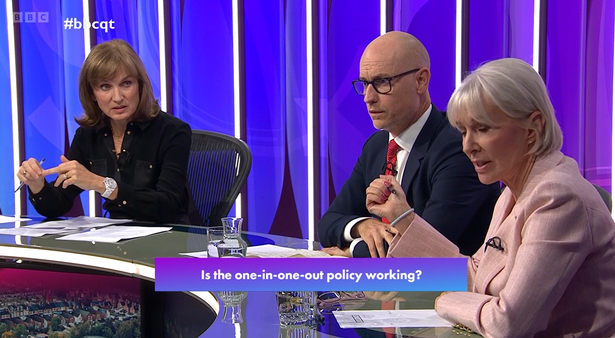
The BBC Question Time episode featuring Nadine Dorries vividly demonstrated the challenges politicians face when debating immigration. Dorries’ struggle to articulate Reform UK’s immigration policies led to audience laughter and raised questions about the party’s readiness to govern on this critical issue. Immigration remains a deeply divisive topic in UK politics, requiring clear communication, thoughtful policy-making, and compassionate public discourse.
If you want to stay informed about the latest political debates and immigration policies, be sure to follow our updates and join the conversation. Your voice matters in shaping the future of immigration in the UK.
